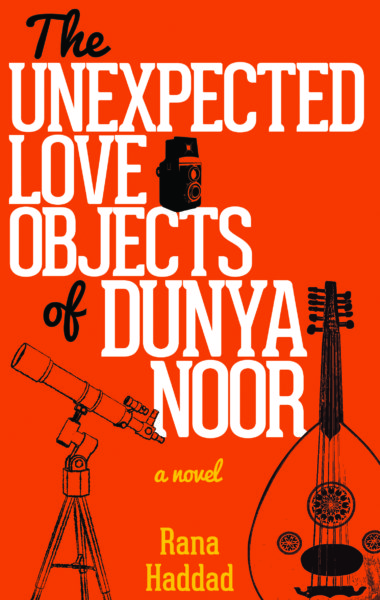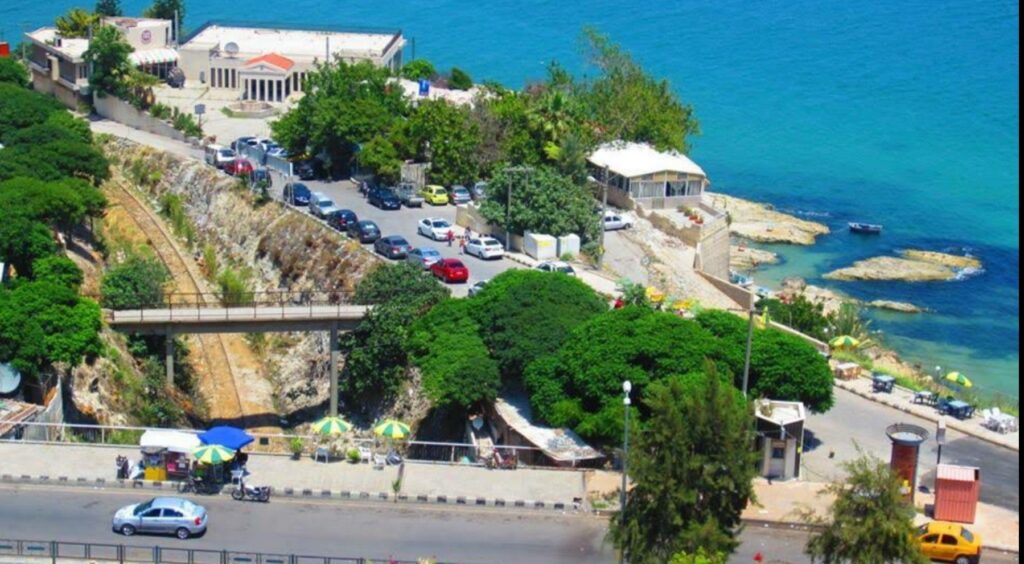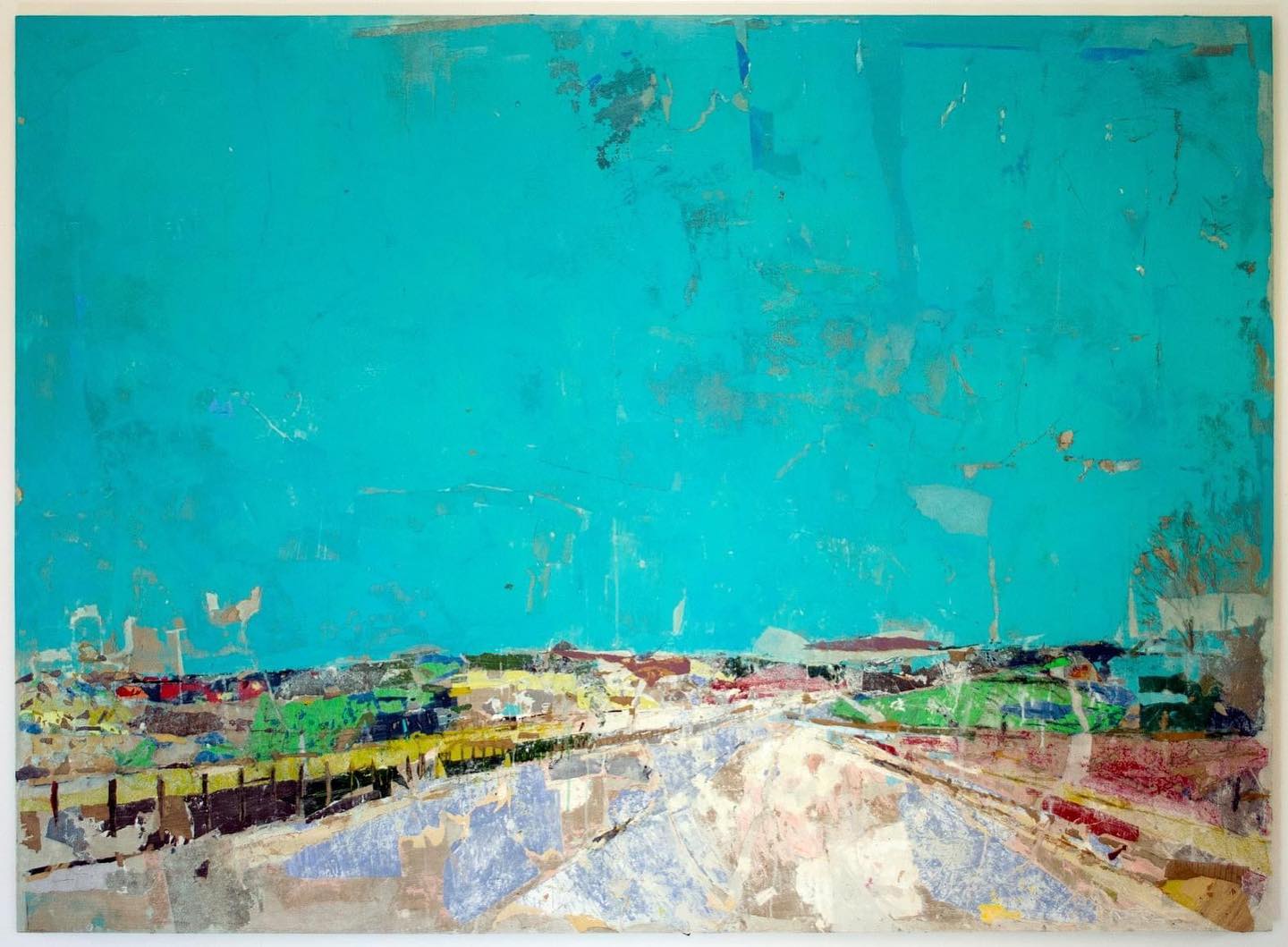Novelist Rana Haddad spent the first fifteen years of her life in Syria before moving with her family to England. The difference between what she saw and experienced in Syria and what she heard about Syria in England thereafter was like night and day. This is part one of a two-part essay. The second instalment is entitledObjective Brits, Subjective Syrians.
Rana Haddad
Imagine if a stranger were to tell your story in their words. Moreover, imagine that this stranger believed their own fantasies about you more than what you told them about yourself, and that this stranger’s voice was loud enough for all the world to hear — but yours was not. This is what it’s like to be a Syrian living in the West.
I was born in Syria’s harbor city of Latakia in 1970, the year General Hafez Al-Assad became president of the Syrian Arab Republic, or rather its de facto king. For since his dramatic arrival on the scene, all dressed up with his signature moustache and military uniform, Assad ruled Syria as if it were his kingdom. And to prove this, he later bequeathed it to his shy ophthalmologist son, who for many years didn’t know he was a prince or an heir apparent.
Syria at the time I was growing up there was a country where the humblest person read and wrote poetry and ate the most meticulously-prepared dishes, because both good food and poetry were considered a basic necessity of life.
Think of what it might have been like living in England during the Tudor or Elizabethan eras, but add in all sorts of period props such as 1970s fashions, gadgets and music from both East and West, black and white TV, radios, telephones, cameras, cars, buses, traffic lights, ketchup, mayonnaise and fountain pens. Add to that scene a Mediterranean lifestyle no different from those enjoyed in Italy, Greece or Spain but significantly more ancient, a fabulously refined food culture, along with music and poetry enjoyed by both rich and poor.

Syria at the time I was growing up there was a country where the humblest person read and wrote poetry and ate the most meticulously-prepared dishes, because both good food and poetry were considered a basic necessity of life. Syria, which spanned both a large part of the Levant and a portion of the Fertile Crescent and Mesopotamia, had been a multicultural, multiethnic and multireligious society for millennia. Dotted along its coast and hinterland were monuments such as Ugarit where the first world alphabet was created, and numerous Phoenician, Aramean, Assyrian, Babylonian, Roman, Greek and Byzantine, and crusader ruins and castles. There were early versions of Aphrodite and Venus here; the goddesses Ishtar and Inanna were worshipped with similarly dramatic myths that predated the Greek myths, myths peopled with gods and goddesses; with poetry and art to match as well as ancient innovations in science, music, astronomy, math and even law. Syria, which was also influenced by the Ottomans and the French, was once the sweetheart of British orientalists such as T.E. Lawrence, Agatha Christie and Gertrude Bell, who saw in its land and culture and people the tremendous magic and beauty that very few ordinary British people of today know about.
Another mostly-forgotten truth about Syria is that it is the mother of the Christian west, or perhaps its grandmother; some of the world’s first churches continue to be active there today, with services conducted in Aramaic, the language of Christ, a close cousin language of both Arabic and Hebrew (Biblical or greater Syria encompassed today’s Syria as well as current day Anatolia, Antioch, Lebanon, Palestine and Israel – before it was divided up like a piece of cake by the French and the British a century ago).
But for all the decades before the terrible war that erupted in Syria after the 2011 revolution, to all intents and purposes Syria did not exist, or if it did then it was as a land of Bedouins and terrorists and nothing much in-between. But this was not the Syria that I lived in for the first fifteen and a half years of my life.
During the 1970s and 1980s, my father first had a black Citroën, and later a white Peugeot; we had hardly ever been confronted with a camel except on TV. As children and teenagers, we knew all about the West, which did not know anything about us. We watched Casper the friendly Ghost and Tom and Jerry on our television screens as well as Russian fairy tale cartoons; we watched Charlie’s Angels and Dynasty and Dallas as well as Syrian and Egyptian soap operas. We were not familiar with tents either, nor with deserts (except on school trips to Palmyra which was in the part of Syria where, yes, we had a desert). Syria had the Mediterranean, mountains, plains, major rivers such as the Orontes and Euphrates as well as a desert. It had an urban professional class, a rural class as well as Bedouins, it had liberal people as well as conservative, rich as well as poor. Everything existed there, like it does in many other nations. But unlike in the West, which had lost touch with its own ancient roots, in Syria modernity and the past co-existed in a way that many of us found deeply enriching and it filled our world with meaning.

We went to a girls’ school that was formerly a French convent school, a stone’s throw from the Corniche which was full of cafes and fish and Arabic mezze restaurants, where people played backgammon, drank Syrian-made Arak, beer and wines and watched live concerts of both Arabic and western singers and bands. Our school courtyard was full of centuries-old trees and fragrant blossoms, and our school with teachers with French names such as Mademoiselle Laudie and Madeleine, Gladys, Georgette, or a Turkish Ottoman name such as Madam Irfan, and our Arabic literature teachers had names like Jawhara (Jewel), or Ramez (the Symbolic one) or Usama (the one who has a name). All of history was encompassed in our teachers’ names. Our dentist had a Greek name, our supermarket owner was Armenian, the woman who helped my mother every day at home was Alawite — she was illiterate but her daughters eventually went to study at university and became teachers. As a small child I learnt my first words in Arabic with an Alawite village accent as I spent so much time with her and also her children, giving me a sense of both rural Syria where she came from as well as the urban and coastal Syria where I grew up. In our Christian convent school, we had plenty of Muslim children. Sitting side by side together we grew to love one another and developed friendships that lasted a lifetime; many of our parents were friends and business associates and former schoolmates too, and the links between the families and their off-spring had lasted for many generations.
And as for war and terrorism, yes, I had a short experience of them. Three years after I was born, a 19-day war erupted with our 25-year-old neighboring state of Israel. Every morning we would see petrol silos burning on the coast, and a soldier by the name of Jawdat was stationed in our garden to protect our house, which faced the city corniche. Every morning and afternoon, I would bring him a tray of coffee and biscuits, and I remember how when he left I cried the way only a little girl can cry at losing a young man in uniform who treated her as if she were his daughter or his sister. As soon as the war stopped life returned to normal, and it was as if nothing had happened.
The Syrian love of life continued unabated, and became even more intense with the knowledge that none of what we had could be taken for granted. One day military airplanes could be flying over our coast and houses, while we were playing card games in bunkers, and then a few weeks later we could find our parents sitting in a fish restaurant, while we children played hide and seek, or with rackets on the beach. But apart from these drastic one-off 19 days of danger, daily life in Latakia was extraordinarily safe and secure. As a young girl of eight or nine, it was not unheard of for me to take a taxi on my own or with my friends to go here and there, or to go and visit my friends on foot without supervision. From morning till night, our lives as children and teenagers were free, we did as we pleased and the city was our playground. The number of people who knew us, our parents and even our grandparents was in the high hundreds, so wherever we went we were surrounded by acquaintances, who kept an eye on us.
The soundtrack to my childhood was the singer Dalida, with songs such as “Helwa Ya Baladi” (You are Beautiful, My Land) and Gigi L’Amoroso (about a young man who left his homeland, only to suffer humiliation), Bony M, Abba and later the Eurythmics, Michael Jackson, Queen and Wham, as well as the poetic and plaintive tones of Umm Khoulthom and Abdul Halim Al-Hafez, who during those early years my generation thought of as absolutely dull and boring, only to understand our grave error in our maturity. Meanwhile we were happy to gorge on the comedies and songs of Ghawar Al-Toshe, whose criticism of our government system was implied but never openly, and all the other foibles of our society were turned into the butt of endless jokes and hilarity. In school we learnt French poetry and Arabic poetry and had to sing the national anthem every morning, “Syria, my beloved, you have returned to me my freedom, you have returned to me my dignity.” Even that song provoked a mixture of a strange feeling of patriotism mixed with an awareness of the absurdity of its words, for yes, Syria was our beloved, but she had been captured and she was not free, and yet we loved her and she made us happy. Our female teachers wore full make-up and dressed with French chic, and our male teachers were well dressed too and rather literary. One of the Arabic literature teachers wore a fur coat and looked like a super model and was the school heartthrob until he got engaged and married — to every girl’s eternal chagrin.
Our PE teacher was heavily overweight and we had hardly any classes as a result, while our school bus driver had a number of golden teeth and drove a bus that was older than a dinosaur, we thought. Corporal punishment was used by some teachers as part of their arsenal to subdue us. But this was regarded as quite normal and no one batted an eyelid, as in Roald Dahl’s Matilda, inspired by his British school days in the 1920s.
When I look back at those years, I wonder how it was possible to have had such a happy childhood growing up in such a time and circumstances and in a school where if a teacher was angry they were perfectly within their rights to scream at us at the top of their lungs and insult us with bizarre expressions such as, “You’re not worth the skin of an onion!” or “You’re an owl” or “a donkey” or “a ghoul.” All or most of those crazy behaviors by our teachers made us tremble in our seats while they happened, only for us to later remember them as so outlandish that they elicited more chuckles in retrospect than anything else. And we often took our revenge with some of the teachers in the summer, for example by throwing balloons filled with water at some of them as they passed underneath a balcony. We were not passive subjects of their outbursts, but often had a few tricks down our own sleeves in retaliation.
I was not the only one who felt that way about those years and about Syria before the war, my feelings are shared by many. And although much of what we lived through was not as it should be in an ideal world and people wished for far better, yet somehow in our minds this was no reason not to enjoy life as most of us did. What I remember most vividly from those years are my friends, my books, the beach, the laughter and the atmosphere of that city that can hardly be compared to anywhere except Beirut before its own un-civil war: a tantalizing and satisfying mixture of east and west, leisurely and studious, serious and silly. This was our life. We collected stamps, we read books and comics, Tin Tin and Asterix, Superman and Mickey Mouse all in Arabic, as well Khalil Gibran, who in the west is classed as New Age literature and in the Levant as local literature read by young and old. We also read the risqué novels, travel writing and love stories of the Syrian writer Ghada El-Samman and many other writers from both Syria and the entire Arab world past and present, such as Hanna Mina and Adonis — both world writers who were born in the vicinity of Latakia. Our bookshops carried the iconic British Lady Bird series in Arabic and an endless number of Russian classics, as well as Dickens, Victor Hugo, the Koran, the Bible and modern and medieval Arab poetry, which we were forced to memorize line by line at a very tender age for fear of being beaten with a small wooden stick on our palms or humiliated in front of a large class of our friends, who were always full of sympathy afterwards. The teachers were so strict that we found our solace in each other’s friendship and affection, which was easy and uncomplicated during those early years.
That is mostly what I remember about Syria. And after leaving in 1985 with my family, every summer visit also involved more of the same. Life in Syria was full of socializing, humor, jokes, reading, talking, philosophizing and hearing about endless love stories, many but not all of which were forbidden. Marriages, engagements, elopements, fanatic obsession with fashions and dress, laughter, tears and more of that were the daily fare of our lives and the lives of everyone we knew.
Every now and then we would hear a whisper of someone being imprisoned, an assassination by the Muslim Brotherhood or by the regime or some terrible behavior by one of the nephews of the president or his brother, but then it would be forgotten and life would carry on as if nothing had happened.
It was perhaps only two years before we left Syria, when I was about 13 years old, that I finally understood that we were living in a dictatorship and what this actually meant. It was at that age that I understood that the price of freedom was exceptionally high, and I thought that I was prepared to pay it. But apart from one friend in my school whose father was in prison because otherwise he rather than Hafez Al-Assad would have been the president of Syria, all the other children had no interest in politics, and did not want to hear anything about freedom or the price one might have to pay for it. As I grew up, most of my friends started to look like movie stars, though quite extraordinarily well read and clever ones at that, because during that time in Syria (and the entire Middle East), there was no conflict between intelligence and femininity or beauty, something which strangely enough did exist in what we had believed was the more progressive west. Many girls went on to study architecture, engineering, mathematics etc. None of those subjects were considered unfeminine, and I for example was told off continuously by all my teachers because I only wanted to study literature, instead of something more serious and scientific like medicine or architecture or law. But despite their intelligence, or perhaps because of it, most of my compatriots had decided very early on not to concern themselves with what they knew would be the lethal games of politics or journalism.
This is but a glimpse of what I have to say about Syria. But the most important thing is that the way I saw Syria and the way Syrians see Syria is nothing like the way those who have not been there see it or imagine it to be. But it is they who own the global loudspeakers, the instruments of media, and it is they who tell the story of Syria as they see fit. And they who are convinced that their story is the objective and true one, while we the people of that nation do not know anything because we are subjective, and our voices are only relevant to prove their theories about us, as sound bites to populate their pre-written and pre-conceived documentaries, which they have the means to broadcast across vast tracts of our planet.
(Continued here.)




